BusinessLDN Place Commission

The report has been developed after a year of deliberations with the 20 senior businesses that form the Commission, which is chaired by Francis Salway, former Chief Executive of Landsec. It is backed by in-depth research and analysis from Deloitte.
It explores the evolution of the capital’s urban environment through the lenses of people and spaces, sustainability and innovation and sets out a bold vision for a 21st century London that is a more affordable, digitally-enabled and greener city.
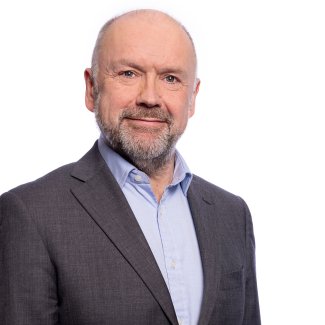
“For London to thrive and remain a world-leading city, we must seize this once-in-a-generation opportunity to reimagine the capital’s places and spaces following the pandemic. The urban environment is the backbone of the city, and it is vital to delivering economic growth and attracting the best talent from around the globe.
The Commission’s wide-ranging recommendations would help deliver more affordable homes, create better transport connectivity and support London’s transition to net zero. These are all vital to creating a capital that works for business, for Londoners and for the whole of the UK.”
John Dickie, Chief Executive, BusinessLDN
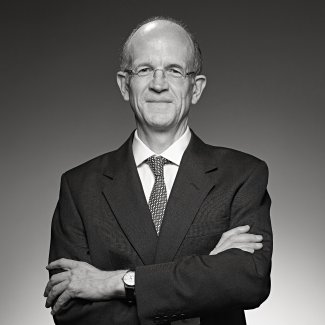
“International cities operate in a highly competitive environment, and London’s place in the hierarchy of world cities cannot be taken for granted. It is essential that London has the right systems in place to enable the city to flourish, supporting organic change and not being overly prescriptive about how things are done. London has demonstrated its ability to evolve its urban environment in the past and must do so again – at pace.”
Francis Salway, Chair of the BusinessLDN Place Commission and former Chief Executive of Landsec
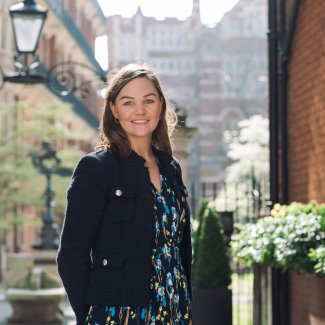
“Decarbonisation isn’t just essential for the planet or helping London adapt to the effects of climate change. The green economy could be worth $10 trillion by 2050. Through progressive policies and action we have the opportunity to put the UK at the forefront of the global green agenda, delivering leadership, jobs and growth. This report provides an exciting new blueprint to help London retain its role as a leading global capital working for the good of the whole of the UK."
Tor Burrows, Executive Director, Sustainability and Innovation, Grosvenor

"The pandemic had a huge effect on life and the capital as we know it, and it’s vital that we re-examine how London’s places and spaces should evolve.
Investment in transport, affordable housing and decarbonisation are key to London delivering economic growth and remaining a global leader for business and talent. The Commission’s work contributes valuable thinking on how the capital can continue to thrive and flourish, ensuring a greener, fairer and safer London for all.”
Jules Pipe, Deputy Mayor for Planning, Regeneration and Skills
The Place Commission report sets out our blueprint for London’s post-pandemic urban environment. Read more about the publication here.
John Dickie, BusinessLDN’s Chief Executive shares his thoughts on how London’s urban environment must evolve if we are to thrive in the future. Read the blog.
Watch our video about the Place Commission’s Vision to the right or read more about it here.
The Commission’s recommendations
A London-wide, programmatic and sustained approach to increasing housing supply must be pursued to make housing more affordable to all Londoners.
Placemaking requires a focus on purpose, identity and accessible public realm.
London must use its urban environment policies to become a world-leading net-zero carbon city. Regulations and policies must determine carbon performance on a whole-life cycle basis alongside rising standards and financial incentives to drive innovation and investment.
The enhancement and expansion of Transport for London’s (TfL) network must be placed at the heart of London’s physical and economic growth and used to drive forward the sustainability of the capital.
London needs an accelerated roll-out of its digital infrastructure, services and data management architecture to support modern placemaking.
London should review its structures and processes in relation to the urban environment to ensure its limited resources are maximised and are well placed to secure more investment and effectively manage change.
Debbie Akehurst, Chief Executive, Central District Alliance
Debbie Akehurst is the Chief Executive for Central District Alliance and Hatton Garden BIDs, working across the public, private and third sectors. Debbie has years of experience of working in property, regeneration, and economic development. Developing partnerships and bringing people and sectors together to deliver better outcomes is invaluable to the businesses and stakeholders of both BIDs. Creating social value and enhancing the communities she serves sits at the heart of Debbie’s approach and she specialises in working with businesses to help them develop strategies to support the communities in which they operate.

John Anderson, Chief Investment Officer — Imperial College London
John has played a key role in the evolution of the College’s Financial Strategy since 2000 including the establishment of the College’s Endowment Fund which now stands at just over half a billion pounds including the development of the Non-Core property portfolio (£8m in 2005 to £130m+ in 2022).
The strategic objective is to maintain a viable financial strategy for the College to achieve its long term growth ambitions.
John initiated the Imperial White City Campus, leading the College’s acquisition of the various land assets and supporting consents for over 4 million sq ft of mixed use development to date.
This includes the development of the GradPad Postgraduate student accommodation portfolio; the I‑Hub co-location operation in White City; and the delivery of 88 Wood Lane and sale and development agreement for Centre House to create a Westmont with a meaningful allocation of apartments for College Key Workers.
Most recently John led the Scale Space Joint Venture to expand into digital and FinTech co-location and supported the joint Industrial Strategy with Hammersmith and Fulham.
This has created the critical foundations to deliver a genuine and inclusive Academic led White City Innovation District.

Harry Badman, Chief Development and Asset Repositioning Officer — Hammerson
Harry has over 20 years’ experience in the property sector, joining Hammerson from Axa Real Estate, where he was UK Head of Development. Prior to his 10 year career at Axa, Harry was Investment Director for over seven years at Allied London.
Harry has extensive experience in urban mixed use development and asset management, and has led on a number of major projects from start to completion, including the delivery of 22 Bishopsgate, London, 6 Pancras Square, Kings Cross, Spinningfields in Manchester and The Brunswick Centre.
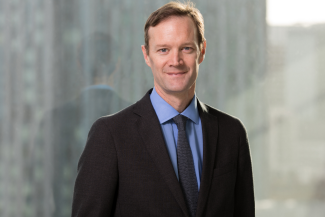
Virginia Blackman, Principal and National Head of Site Assembly & Compulsory Purchase — Avison Young
Virginia is a Principal and National Head of Site Assembly & Compulsory Purchase at Avison Young. She has over 20 years of experience advising on development, regeneration and infrastructure projects across the UK, focusing on projects with public and private partnership, particularly those requiring site assembly and compulsory purchase. Clients include local planning authorities, developers, infrastructure providers and regeneration agencies and she chairs the RICS Expert Working Group on Compulsory Purchase. She is an experienced public speaker, chair and panellist, and a mentor both internally within Avison Young and externally.
Her experience spans the development process, from early-stage feasibility assessments through to delivery of projects. She combines a commercial understanding of the development process with experience of the entire land assembly process to provide realistic and deliverable advice to clients.
Recent projects include The Landing, Maidenhead, Vicarage Fields Barking, West Hendon estate regeneration, a housing scheme in Rochdale, advising Walsall Borough Council on delivery of new housing and employment space, garden communities and other new residential settlements as well as business cases to justify transport infrastructure to facilitate economic development.

Nick Brindley, Partner — Newmark
Nick has over 25 years post qualification experience in promoting major development projects across London. This has included a focus upon commercial-led regeneration projects within the Central Activities Zone such as Landsec’s strategic developments in Victoria, St James Market Phase 2 for The Crown Estate and Oxford Properties, Soho Place, Brunel Building and 19 – 35 Baker Street for Derwent London, The Cube for Sellar, and numerous Elizabeth Line OSD developments across Central London including Great Portland Estate’s Hanover Square masterplan.
Nick also has extensive experience in progressing major residential-led schemes across London such as City Forum in Islington for Berkeley, The Biscuit Factory in Bermondsey for Grosvenor, and Taberner House in Croydon for Hub Group. He has particular expertise in relation to specialist forms of housing including build to rent housing (e.g. Pocket Living and Hub Group), student housing (Urbanest and Unite) and housing for older people (Auriens, Riverstone, Maplewood).
Nick has significant expertise in relation to major transport infrastructure delivery and interface with development proposals and is currently the retained planning advisor to HS2 at Old Oak Common. He is actively involved in planning policy formulation and application across London, including through London First but also the London Property Alliance and the BPF’s Planning Committee. He has a keen interest in the future sustainable growth of London from a commercial, housing, place-shaping, and sustainability / environmental perspective.
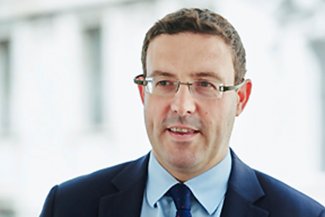
Tor Burrows, Executive Director of Sustainability & Innovation — Grosvenor
Tor Burrows is the Executive Director of Sustainability & Innovation for Grosvenor Property UK.
She is responsible for the delivery of its 2030 environmental goals including its net zero carbon and offsetting commitments, as well as its social impact strategy and innovation programme.
In 2021, Tor has held the post of COP26 UK Built Environment Climate Ambassador leveraging this pivotal conference to galvanise stronger commitment and action from both industry and government towards net zero carbon ahead of 2050. She also chairs the Westminster Property Association’s Senior Advisory Committee and sits on the Advisory Board of Goldfinger, a social enterprise.
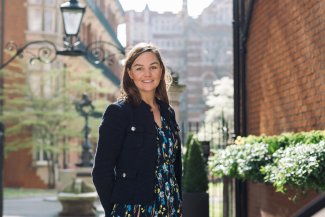
John Dickie, Chief Executive — BusinessLDN
John Dickie is the Chief Executive at BusinessLDN. Formerly the organisation’s Director of Strategy and Policy, he was responsible for the business membership organisation’s public policy development and its member management team. A former Deputy Leader of Camden Council in London, John was a member of the current Mayor of London’s London Finance Commission, the previous Mayor’s Infrastructure Delivery Board and is a member of the King’s College Commission on London.
His previous senior roles include Head of Corporate Affairs at the BBC, Regulatory Affairs Director at the European Competitive Telecommunications Association and Managing Director of consultancy Prima Europe, later GPC London, where he provided political and policy advice to major international businesses. John started his career at Swiss Bank Corporation International and has degrees from Oxford University and the London Business School.
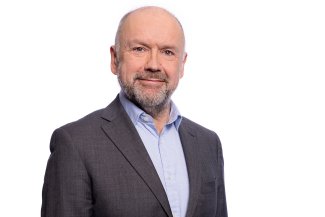
Kathryn Firth, Director — Arup
Kathryn Firth is a Director in Cities, Planning and Design at Arup. She is an architect and urban designer whose passion for creating thriving urban places spans some 30 years, working in cities around the world with diverse spatial, social and economic contexts.
Prior to joining Arup, Kathryn was Urban Design Director at several practices in the UK and the US. She was the Chief of Design at the London Legacy Development Corporation, where she directed teams of architects, landscape architects, planners, and engineers to realise the Olympic Legacy. She has led masterplanning and urban regeneration projects across the UK, the US, Europe and the Middle East. These have ranged from public realm improvements to brownfield site development of several thousand hectares.
Kathryn is committed to a productive exchange between the practice of urban design and academic research and is a proponent of a multi-disciplinary approach that ensures collaboration across design, development and socio-economic disciplines. She has ongoing involvement in topical research including social and environmental resiliency in town centres, investigations into typologies and morphologies that support land use intensification in urban and suburban contexts and the intersection of healthcare and urbanism.
Kathryn serves on several design review panels and is a Mayor’s Design Advocate. She holds a Masters of Architecture in Urban Design at Harvard University’s Graduate School of Design, where she has been teaching over the past 5 years. She also teaches regularly at the Bartlett, UCL.

Pete Gladwell, Group Social Impact & Investment Director — Legal & General Capital
After an erstwhile life as a Youth Worker, Pete joined Legal & General in 2007, launching a new generation of property funds focussed on liability matching and Defined Contributions pension schemes, and L&G’s joint venture with PGGM, which total over £5bn.
In 2015, Pete moved to lead L&G’s investments with the Public Sector — including the Cabinet Office, Local Authorities, NHS, Housing Associations and Universities — which now total over £4.5bn.
Pete holds an MA from Brasenose College, Oxford in Computation, the IMC, and is a Fellow of the Royal Society of the Arts and Honorary Professor at UCL.
Pete is heavily involved in local community projects in Harlesden, west London and a Trustee of the Young Foundation, which works to create a more equal and just society through social innovation.

Simon Harding-Roots, Managing Director for London — The Crown Estate
Simon Harding-Roots is The Crown Estate’s Managing Director for London. In this role, he oversees a 10 million sq ft portfolio, including the Regent Street and St James’s Districts, valued at circa £8billion. Simon is leading on a strategic new vision for the London Estate that will enable it to evolve and support exciting and relevant neighbourhoods.
Most recently, Simon worked at Grosvenor Britain and Ireland as Board Director helping oversee overall strategy, and as Executive Director leading the Major Projects team delivering major real estate investment and regeneration projects across London worth around £2 billion.
Prior to joining Grosvenor in 2015, Simon held a number of roles across London and the property sector, including as Chief Operations Officer at Imperial College London.
He has also held senior roles within the international property market, including with Treasury Holdings Group in China, Arcapita Bank in Bahrain and Majid Al Futtaim in Dubai, UAE.
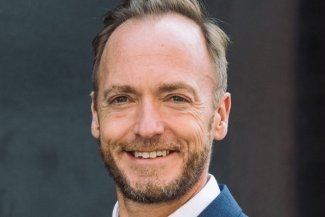
Paul Hewlett, Director of Strategy and Corporate Development — Workspace
Paul Hewlett joined Workspace as Director of Strategy & Corporate Development in 2021. He was previously Executive Director of the UK investment Banking Real Estate team at J.P. Morgan Cazenove. Paul has extensive Corporate Finance advisory and Corporate Broking experience, advising companies across the sector on a wide variety of transactions, notably focused on Merger & Acquisitions and Equity Capital Markets.

Peter Hogg, UK Cities Director — Arcadis
Peter is accountable for key activity across the UK’s leading cities and in the capital. He also leads for Arcadis on Placemaking. A Fellow of the Royal Institution of Chartered Surveyors with 24 years’ industry experience, he has a keen understanding of how to align built and natural assets to the vision, strategy and key priorities of our clients. He has a particular interest in creating successful cities.

Alan Holland, Managing Director — SEGRO
Alan Holland is the Managing Director for SEGRO’s Greater London business. With a market value of £7bn the Greater London business includes over 417 customers. Historically concentrated in Park Royal and Heathrow, the portfolio has expanded its urban logistics and light industrial footprint in North and East London, with the London unit now spanning over 47 locations.
SEGRO is a UK Real Estate Investment Trust (REIT), listed on the London Stock Exchange and Euronext Paris, and is a leading owner, manager and developer of modern warehouses and industrial property. It owns or manages 9.6 million square metres of space (103 million square feet) valued at £21.3 billion serving customers from a wide range of industry sectors. Its properties are located in and around major cities and at key transportation hubs in the UK and in seven other European countries. Major retail and ecommerce customers for SEGRO include John Lewis, Amazon, Ocado and Yoox.
Alan is a Chartered Surveyor with over 20 years’ real estate experience in the industrial and logistics markets.
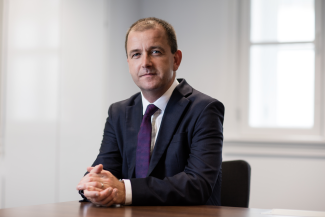
Annelie Kvick Thompson, Partner — Grimshaw
Annelie is a Partner of Grimshaw with over 20 years experience within the practice. She brings a UK and international perspective through her work and leadership of a broad range of projects from strategic master plan scale, as well as a fine-grain design detail. Understanding of how to create positive place-making outcomes through urban design, built environment, and systems integration she enjoys working at the scale of the city and has a proficiency in complex and multi-faceted projects which aim to reveal and improve site usage, capacity and the experiential qualities of place within inner urban sites which is characteristic of her work on masterplans such as Euston Station and Hammersmith Town Centre

John Mulryan, Group Managing Director — Ballymore
John Mulryan joined Ballymore in 2005 and has been a leading figure within the business since 2010 as UK Managing Director and 2016 as Group Managing Director.
He has played a central role in creating thousands of much needed new homes across London with some of the City’s most admired developments including London City Island, Wardian, Royal Wharf, The Brentford Project and Embassy Gardens in Nine Elms.
John has also led Ballymore in creating over 1.5 million sq ft of office space since 2016 in London, Birmingham and Dublin with new headquarters being provided for major corporates and institutions including the Central Bank of Ireland, BT, Penguin Random House, HS2 and the National Treasury Management Agency.
He has also been instrumental in establishing Ballymore as a dedicated placemaker and, under his direction in London, the company is bringing culture to its communities, including constructing new headquarters for English National Ballet on London City Island. Ballymore also worked alongside the US government to move its embassy from Grosvenor Square to Embassy Gardens which was a critical milestone in initiating the regeneration of Nine Elms.

Geeta Nanda, Chief Executive — MTVH
Geeta is Chief Executive of MTVH (Metropolitan Thames Valley Housing) a leading national provider of affordable homes to rent and buy. Across a career of nearly 30 years, she has held a variety of leadership roles in the housing sector. Geeta was Chief Executive of Thames Valley Housing for nine years, and then Chief Executive of Metropolitan from October 2017, before the two organisations merged. She established the highly successful market rent subsidiary, Fizzy Living, in 2012.
Geeta has served on the boards of a number of other housing organisations and is Chair of the G15 group of London’s largest housing associations, which collectively provides home to one in ten Londoners and builds a quarter of the capital’s new homes. Geeta is a Board member of the National Housing Federation, a non-Executive member of PRS REIT plc, the UK’s first quoted real estate investment trust to focus on high-quality new-build family homes for the private rental market, and an Ambassador for the charity World Child Cancer.
In 2013, Geeta was awarded an OBE for achievements in social housing, and in 2021 received the ‘Outstanding Individual’ award at the EG Awards in recognition of her achievements and position as a ‘role model’ within the sector.

Reena Patel, Partner — Gowling WLG
Reena Patel is a real estate partner in the London office of international law firm Gowling WLG. Reena has a strong track record acting on office, retail, shopping centre and mixed use assets and investment in the alternatives such as student accommodation, co-living, build to rent, senior living, social housing and hotels.
Some of Reena’s key client relationships are with LaSalle Investment Management, BAE Systems Pension Funds, Columbia Threadneedle, Hyde Housing Association, Westminster Council, Romulus, Orion Capital Managers, Urban & Civic and Empiric Student Property.

Francis Salway, Visiting Professor in Practice at the LSE, former CEO of Landsec
Francis Salway was Chief Executive of Land Securities plc for 8 years and a non-executive director, and latterly Senior Independent Director, for Next plc, the retailer, for 11 years. Other previous roles include being Chair of The London Community Foundation, which supports local charities and community groups across London; Chair of a Kent based housing association; and a Trustee of Peabody, the London based housing association. He is currently Chair of Transport for London’s Commercial Development Advisory Group, a non-executive director of the Cadogan Estate and a Visiting Professor in Practice at the London School of Economics.
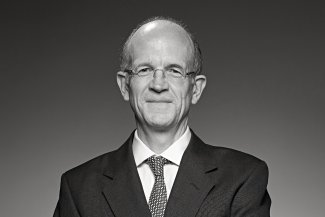
Jeremy Spencer, Director, Marketing and Communications — Bolydn Networks
Since helping to launch the UK’s first 5G public network, Jeremy has led 5G innovation for BT Enterprise. In this role Jeremy was responsible for co-creating and promoting 5G solutions to help public and private sector organisations use 5G technology to transform their operations. Jeremy came to BT from the mobile operator EE where he led commercial development and marketing of new business solutions. This saw him launch the UK’s first 4G network and the EE brand into the large business market.
Having started his career in engineering designing data networks for large business customers, Jeremy transitioned to a more commercial track and has held a variety of UK and global sales, marketing, and product roles. Jeremy has worked extensively across the global technology and telecoms sector for a variety of service providers (including Cable & Wireless and Talk Talk), software and IP/ethernet equipment vendors.

William Touche, UK Vice Chair — Deloitte UK
William is a senior audit partner in the London audit practice and a Vice Chair of the UK firm. He leads Deloitte’s Boardroom development programme hosted in the Deloitte Academy and is responsible for the development and delivery of Deloitte’s points of view and services on governance matters within the UK regulatory environment.
